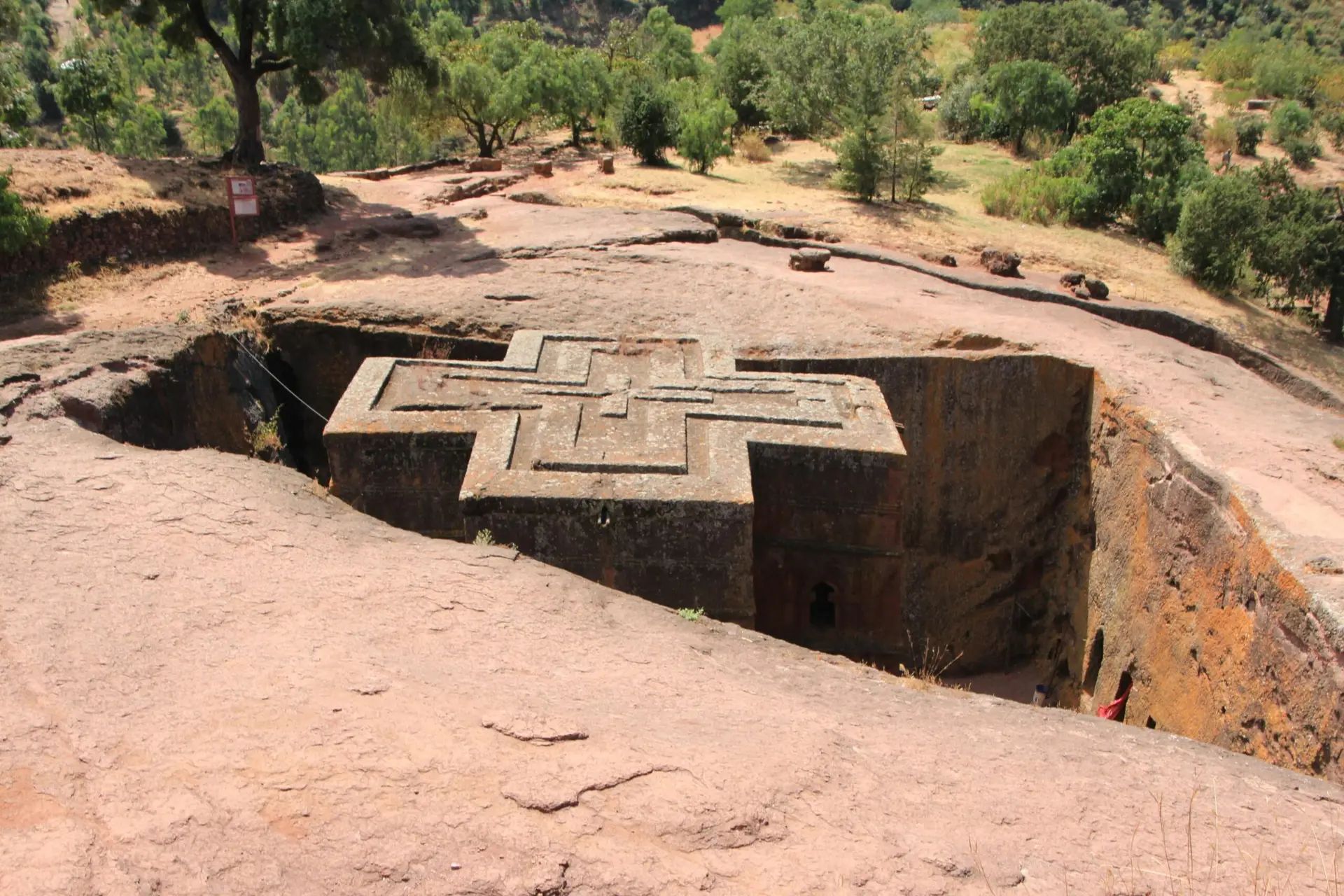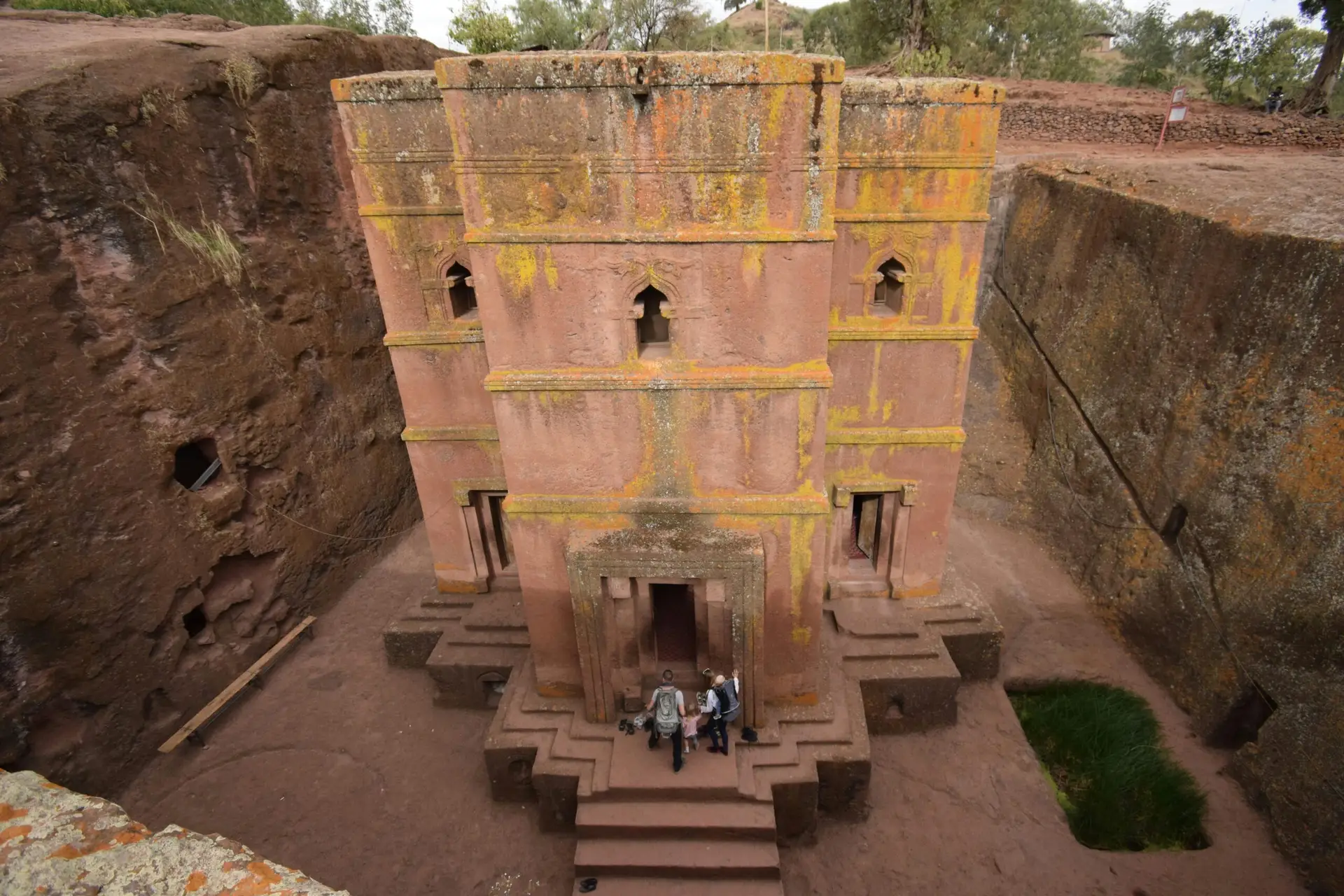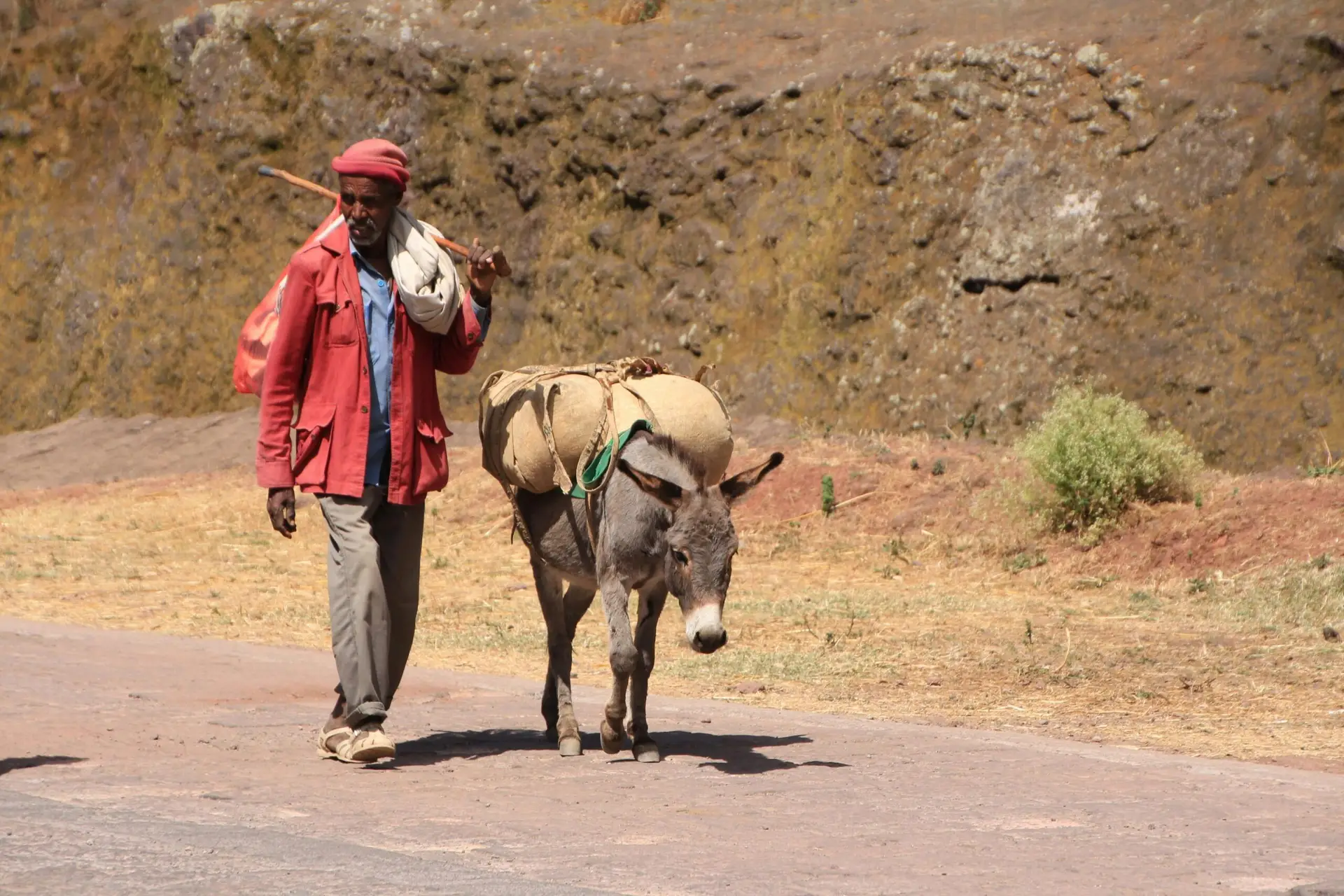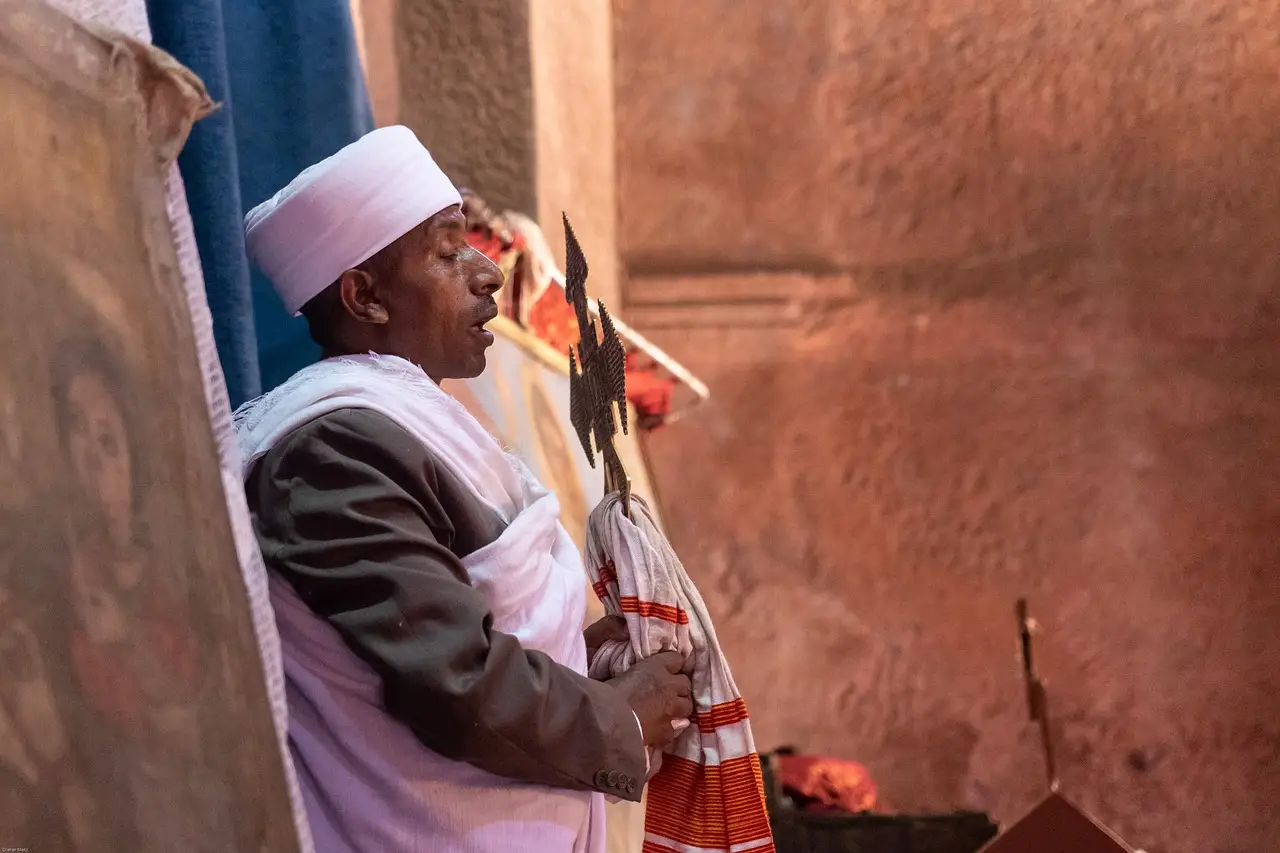This 2 night extension from Addis Ababa views the unique rock churches of Lalibela.
The rock-hewn churches of Lalibela are among Ethiopia’s most remarkable and enduring historical treasures. They were carved directly into solid rock in the 12th and 13th centuries. It was King Lalibela of the Zagwe Dynasty who commissioned these architectural masterpieces. He envisioned creating a “New Jerusalem” for Christian pilgrims. The churches were built during a time when the Holy Land was difficult to reach. Therefore they offered Ethiopian Christians a sacred site within their own land.
There are 11 churches in total in two main clusters. A network of subterranean passageways and tunnels connects them. Each church is unique in design, from the cross-shaped Church of St. George to the monolithic Bete Medhane Alem, the largest of the structures. The medieval architects didn’t use traditional building materials. But rather sculpted into the rock itself, blending perfectly into the rugged landscape.
The intricate detail is astonishing, both inside and outside the churches. Vaulted ceilings, carved windows, and finely etched crosses and arches. Each one is a marvel of medieval craftsmanship. What’s more, these churches are still active places of worship, attracting pilgrims and religious ceremonies throughout the year.
What makes the Lalibela churches so fascinating is their combination of architectural ingenuity, religious significance, and historical mystery. Despite their immense size and complexity, no one is entirely sure how they were built with the limited technology of the time. Today, experts consider Lalibela one of the world’s most important Christian pilgrimage sites, often referred to as the “Eighth Wonder of the World,” and it remains a symbol of Ethiopia’s rich spiritual and cultural heritage.
In 1978 the churches were placed on the UNESCO World Heritage Site list.
For more information about Lalibela.
Lalibela Extension
Lalibela, the heart of Ethiopia’s mystical rock-hewn churches, feels like a journey into another world. Nestled in the rugged Ethiopian highlands, this humble village reveals itself as the keeper of some of the most awe-inspiring UNESCO-listed rock churches on the planet.
Here, ancient traditions pulse through the streets, offering an authentic cultural experience unlike anywhere else. There are no tourist traps, no vendors hawking trinkets, and no choreographed performances—just the raw, untouched essence of Ethiopia.
Amid its arid, dusty charm and wandering donkeys, Lalibela’s panoramic views take you to new heights—both literally and spiritually. It’s a living town where history, faith, and life blend seamlessly, transporting you far from the modern world.
The Lalibela Festival (January 7th)
The Lalibela Festival, known as Genna or Ethiopian Orthodox Christmas, is one of the most significant religious celebrations in Ethiopia, held every year on January 7th according to the Ethiopian calendar. The festival draws thousands of pilgrims from across the country, as well as travelers from around the world, to Lalibela—a city renowned for its ancient rock-hewn churches and deep spiritual significance.
The festival commemorates the birth of Jesus Christ and is marked by intense prayer, fasting, and joyous worship. The atmosphere during Genna is electric, with the town of Lalibela transforming into a sea of white as pilgrims, dressed in traditional white robes, gather at the rock churches for days of prayer and celebration.
The most iconic scenes of the festival take place at night, when thousands of worshippers fill the courtyards of the rock-hewn churches, holding candles and chanting in unison with priests. Religious processions, led by priests in colorful robes and carrying sacred artifacts, wind through the tunnels and passageways of the ancient churches, making for a truly mystical experience. The faithful sing traditional hymns, known as mezemur, accompanied by rhythmic drumbeats and the soft clanging of ceremonial sistra.
The highlight of the festival is the Liturgy of the Birth, celebrated in the early hours of January 7th. Worshippers kneel and pray throughout the night, reflecting the deep spirituality of the event. The festival is also marked by traditional Ethiopian dancing, feasting, and communal celebrations following the religious rites.
The Lalibela Genna Festival is a unique cultural and spiritual event, offering an incredible opportunity to witness the living traditions of Ethiopian Christianity in one of the most awe-inspiring settings in the world. It is not just a religious celebration but a journey into Ethiopia’s ancient past, where faith, history, and community come together in a remarkable display of devotion.







Write a Review